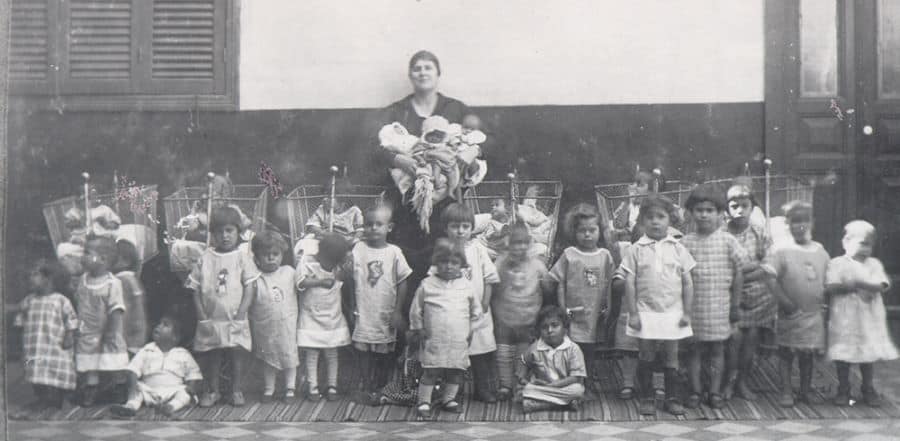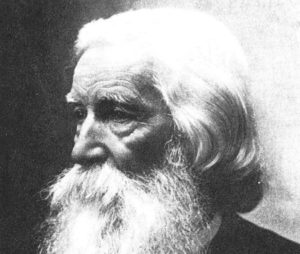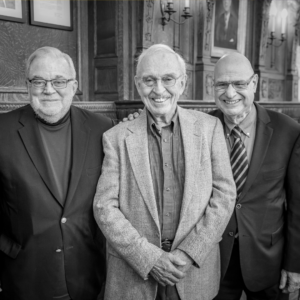 (1887-1961)
(1887-1961)
In 1942, as Nazi General Rommel pushed deep into Egypt’s northern desert and soldiers of fortune pillaged the rest of the country, a middle-aged American gazed at the hundreds of hungry Egyptian children under her care and prayed for another miracle. The Lord had always provided, she reminded herself.
Lillian Trasher had been relying on God’s provision ever since arriving in Egypt in 1910 as an independent Pentecostal missionary. When she was a young child growing up in Georgia, she had promised God she would do anything he asked, and at the age of 23 she heard him clearly calling her to go to Africa. Convicted, she broke off her engagement to a young minister, sold her possessions, and sailed to Alexandria, Egypt. From there she traveled south by train to Cairo and then by boat down the Nile to Asyût, where she entered a mission compound and waited to hear what God had in store.
Within three months Trasher’s life’s work was laid before her—in the form of a malnourished infant given to her by a dying Egyptian mother. The mission directors ordered her to return the child to its village, but Trasher refused to abandon it to a life of certain poverty. In February 1911, she rented a small house, bought a few pieces of furniture, and set up housekeeping for herself and the baby. She would later date this as the beginning of the Orphanage at Asyût.
Trasher’s immediate concern was feeding the child she had taken in, and—no longer supported by the mission station—she was reduced to begging. The first donation she received was 35 cents, enough for the day’s food. It wasn’t long before the young woman began collecting other orphans, and with each additional child she had to plead longer and harder for the money to feed and clothe them. But always the Lord provided.
It wasn’t long before the young woman began collecting other orphans, and with each additional child she had to plead longer and harder for the money to feed and clothe them. But always the Lord provided.
By 1914 Trasher had become affiliated with the newly formed Assemblies of God and began receiving occasional donations from the United States, but still she depended mostly upon the charity of her Egyptian neighbors. By 1915 she had 50 orphans in her care. In 1916 she bought additional land, and she and the older children made bricks in their own kiln to construct new buildings.
Then in 1919 political turmoil hit the country. Unable to guarantee Trasher’s safety, the British authorities ordered her out of the country. She wept as she left but spent the next year garnering increased support. When she returned to her beloved Egypt in 1920, she was resolved to take in anyone in need.
By 1923 the Orphanage at Asyût was also housing widows and the blind, and the head count was 300. Sometimes the orphanage ran out of food, but miraculous intervention always arrived in time. On one such occasion, the residents woke up to find nothing to eat—not even day-old bread or sour milk. Unfazed, Trasher gathered her charges around the empty table and told them to thank God for the wonderful meal he would send them. After the Amen was uttered, a truck pulled up to the back of the orphanage and unloaded sacks of flour, rice, beans, and peas and crates of milk, bread, and eggs—the gift of an anonymous donor.
The ongoing legacy of Lillian Trasher: The Lillian Trasher Orphanage thrives to this day in Egypt, where it is currently home to 400 orphans, 40 widows and 50 staff members with their families.
During the American depression of the 1930s, donations from the States fell to almost nothing, but the orphans continued to arrive and Trasher turned no one away. And again a miracle occurred. In 1935 Lord Maclay of Scotland visited the orphanage and soon after gave her a check for $5,000 and two years later another check for $25,000. The work could go on.
With the arrival of World War II survival again became a daily struggle for Trasher and her charges. As Rommel’s tanks threatened to take Cairo, bandits were terrorizing the cities to the south. The city of Asyût had been pillaged, and the bandits’ lead scout had scaled the walls of the orphanage compound, when suddenly he was felled by a single stray shot. His comrades fled, and the women and children were left unharmed.
And then came a second miracle. Word arrived from the north that the British had captured a German supply ship and wanted to know if the American missionary and her orphans could use a boatload of food. Two days later a convoy came down the Nile with enough supplies to last the rest of the war, and Trasher’s confidence in the Lord’s provision was once again affirmed.
In the next two decades Lillian Trasher would see a school, dormitories, a chapel, and sports facilities built on the orphanage grounds. When she died in December 1961, she had become known all over the world as the “Mother of the Nile,” with 25,000 Egyptian children having come under her care.
~ Leslie Hammond


